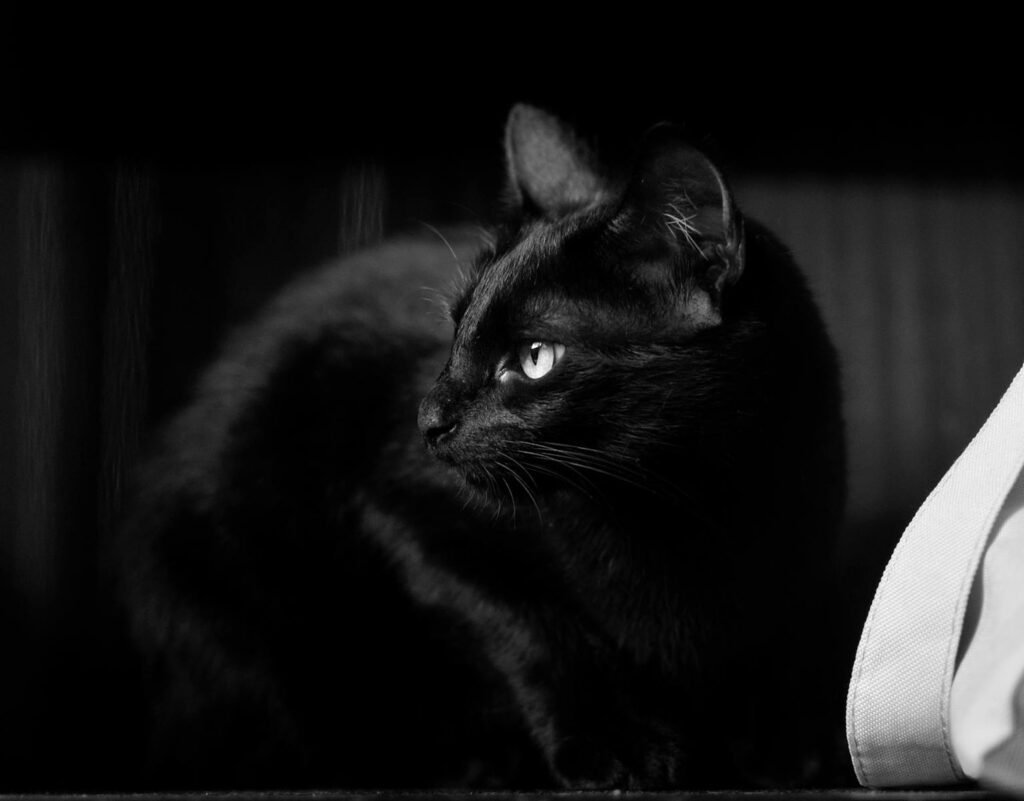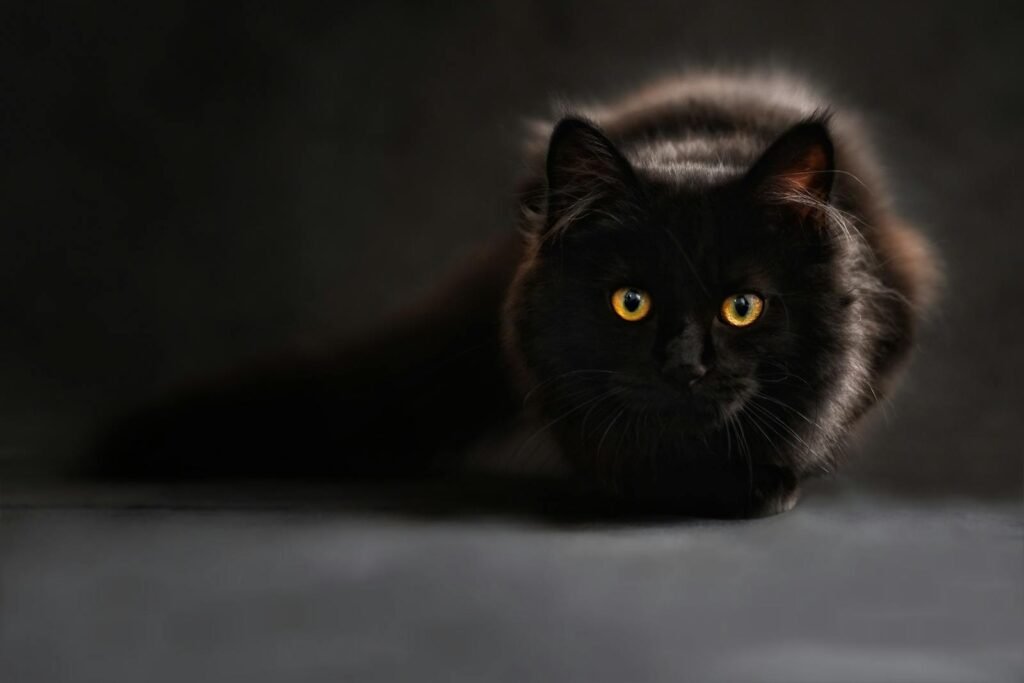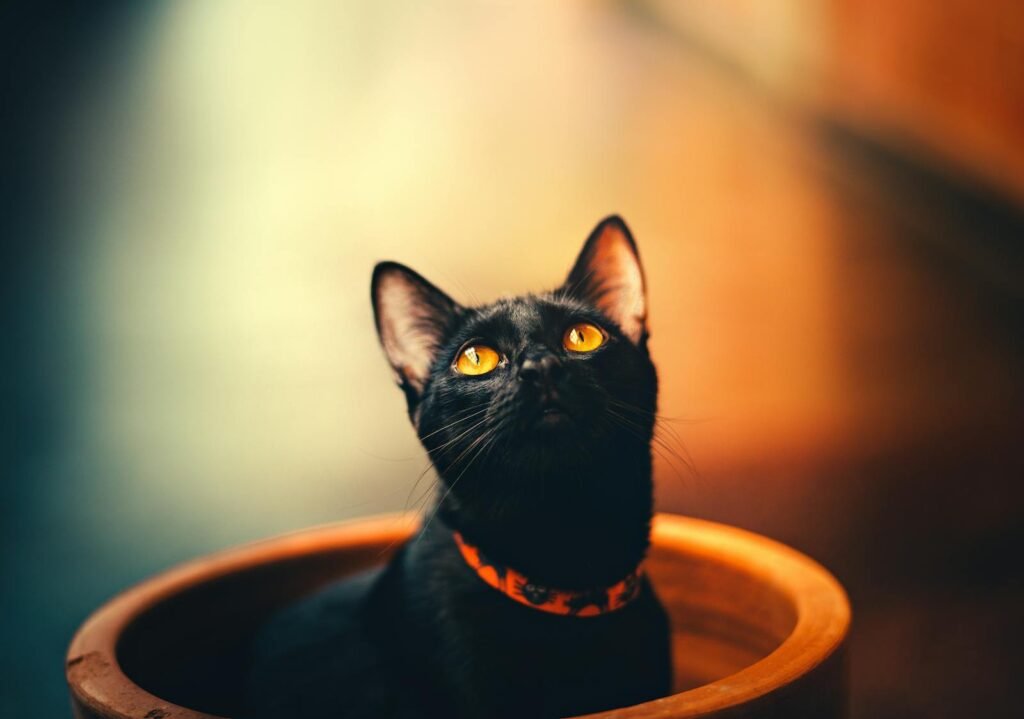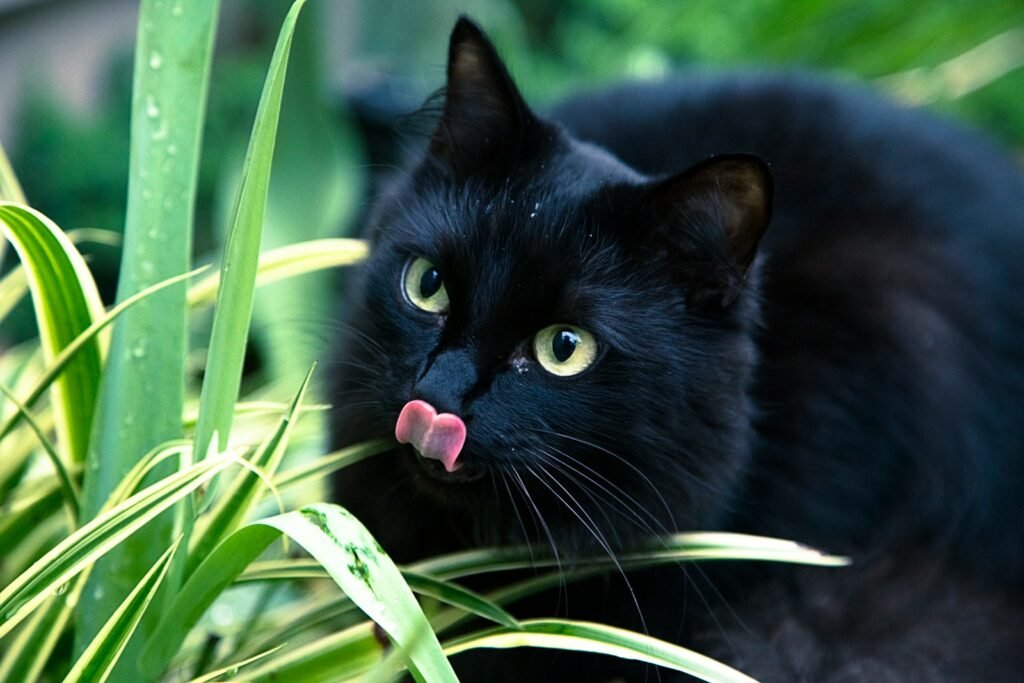The association between black cats and superstition is deeply rooted in history, dating back to ancient civilizations. In ancient Egypt, cats were revered and celebrated, often linked to the goddess Bastet as symbols of protection and fertility. However, over time, the reputation of black cats began to shift, especially with the spread of occult beliefs across Europe.
Medieval Europe and Witchcraft Allegations

During the Middle Ages in Europe, black cats became entwined with the rise of witchcraft accusations. Superstitions painted them as mysterious creatures that could transform into witches or serve as their familiars—supernatural companions given by the Devil. This negative perception grew as black cats were thought to possess evil powers, influencing the world around them.
The Witch Hunts and Black Cats

The mass hysteria of witch hunts between the 15th and 18th centuries further cemented black cats’ sinister reputation. People accused of witchcraft were often portrayed alongside black cats, fueling the fear and hysteria surrounding both subjects. As a result, many black cats were killed during these witch trials, believed to be manifestations of dark magic.
Black Cats in Literature and Popular Culture

Literature and media have perpetuated the association between black cats, Halloween, and superstition. Works by Edgar Allan Poe, particularly “The Black Cat,” solidified the animal’s supernatural aura. Furthermore, movies and television shows frequently depict black cats as companions to witches or harbingers of bad luck, reinforcing these old beliefs.
Halloween Traditions and the Symbolism of Black Cats

Halloween, a holiday rooted in the ancient Celtic festival of Samhain, celebrates the blurred lines between the living and the dead. Black cats, with their mysterious and nocturnal nature, have naturally become associated with this haunting holiday. Their deep black fur symbolizes the unknown and reinforces the eerie atmosphere of Halloween.
Scientific Studies on Color and Perceptions

Scientific research into color bias suggests that humans have predisposed perceptions of certain colors. Black often symbolizes negativity or fear, which could explain the enduring association with misfortune. This psychological perspective explores why black cats continue to be associated with superstitions, despite a lack of evidence supporting such beliefs.
Black Cats: A Beacon of Good Luck in Other Cultures

Interestingly, not all cultures view black cats negatively. In some parts of the world, they are considered good luck. For instance, in Japanese folklore, black cats are seen as symbols of prosperity and protection. Sailors in the 19th century also believed that black cats aboard ships would bring safe passage, emphasizing the cultural diversity in cat symbolism.
Debunking Myths with Modern Science

With technological advancements and a deeper understanding of the natural world, scientists and sociologists have worked to debunk the myths surrounding black cats. Scientific inquiry provides no evidence that black cats are any different from cats of other colors, aside from their fur pigmentation, which results from genetics.
Animal Welfare Concerns and Adoption Awareness

The superstitions surrounding black cats have led to unfortunate consequences for these animals, particularly in terms of neglect and low adoption rates. Many shelters highlight the importance of adopting black cats, promoting initiatives that help change public perceptions and encourage loving homes for these often-overlooked pets.
A Modern Perspective on Black Cats and Halloween

In today’s society, the narrative is gradually shifting. Many people view black cats as symbols of beauty and mystery rather than misfortune. With increased awareness and education, more individuals are dispelling myths and embracing black cats as beloved family members, regardless of ancient superstitions.
In conclusion, the association between black cats, Halloween, and superstition is a complex tapestry of historical, cultural, and psychological factors. While remnants of these beliefs linger in popular culture, there is a growing movement towards understanding and appreciation, championed by science and empathy for our feline companions.
Hi, I’m Bola, a passionate writer and creative strategist with a knack for crafting compelling content that educates, inspires, and connects. Over the years, I’ve honed my skills across various writing fields, including content creation, copywriting, online course development, and video scriptwriting.
When I’m not at my desk, you’ll find me exploring new ideas, reading books, or brainstorming creative ways to solve challenges. I believe that words have the power to transform, and I’m here to help you leverage that power for success.
Thanks for stopping by, Keep coming to this website to checkout new articles form me. You’d always love it!






